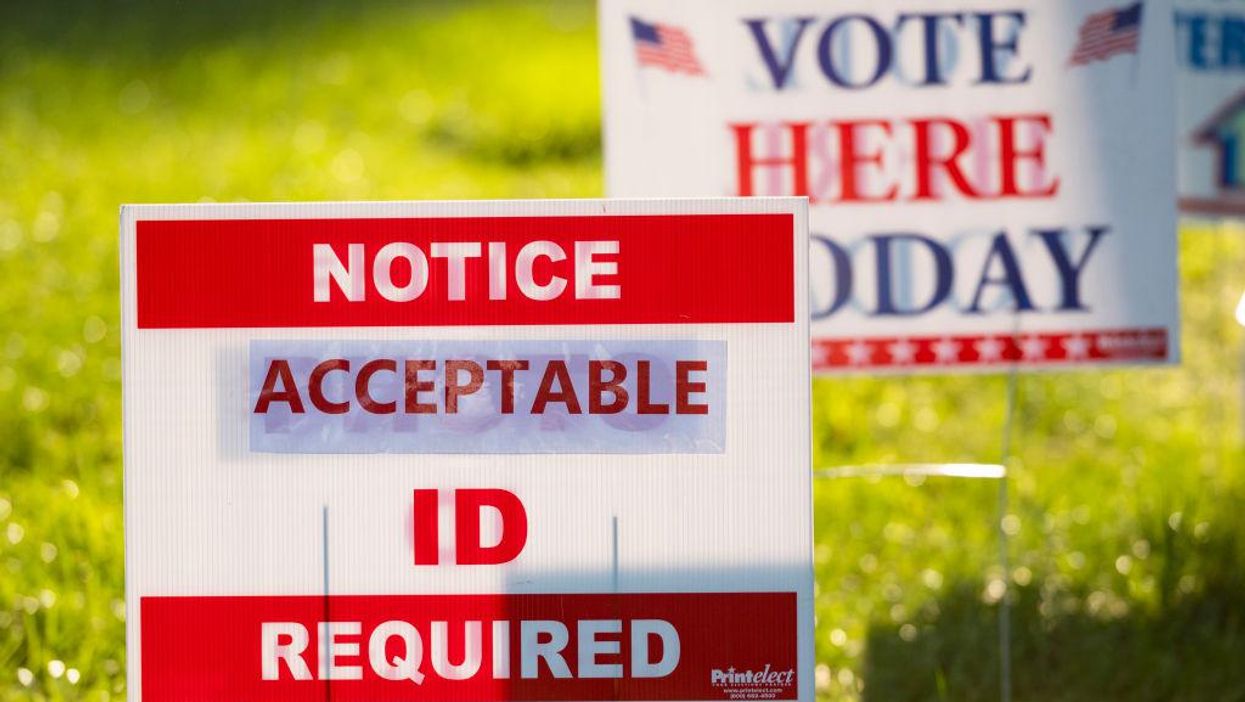
Bill Clark/CQ-Roll Call, Inc via Getty Images

A strong majority of Americans continues to support voter ID requirements even as Democrats and mainstream media reports attack Republican-led efforts to strengthen voter ID laws as "voter suppression," according to a new poll.
On Monday, Monmouth University published the results of a survey that shows an overwhelming 80% of Americans support requiring voters to show a photo I.D. in order to vote.
The poll also found that most Americans support easier access to early voting. Americans are divided on expanding vote-by-mail, though a majority would support establishing federal guidelines for both mail-in voting and voting early.
From Monmouth:
A large majority (71%) of the public feels in-person early voting should generally be made easier. Just 16% say it should be made harder. Opinion is more divided on voting by mail – 50% say this should be made easier and 39% say it should be made harder. At the same time, fully 4 in 5 Americans (80%) support requiring voters to show photo identification in order to cast a ballot. Just 18% oppose this.
Easing in-person early voting access and requiring photo IDs both have bipartisan majority support. Approval of making early voting easier stands at 89% among Democrats, 68% among independents, and 56% among Republicans. Support for requiring a photo ID to vote stands at 62% among Democrats, 87% among independents, and 91% among Republicans. Only Democrats back making voting by mail easier to do, with 84% supporting this idea compared to just 40% of independents and 26% of Republicans.
More than 2 in 3 Americans (69%) support establishing national guidelines to allow vote-by-mail and in-person early voting in federal elections in every state. Just 25% oppose this idea. Support for establishing national voting guidelines on these issues comes from 92% of Democrats, 63% of independents, and 51% of Republicans.
"The poll contains some seemingly conflicting information on voter access. The bottom line seems to be that most Democrats and Republicans want to take the potential for election results to be questioned off the table. The problem, though, is they aren't likely to agree on how to get there," said Patrick Murray, director of the independent Monmouth University Polling Institute.
In recent months after the 2020 presidential election, which was unsuccessfully contested by former President Donald Trump, several Republican-controlled legislatures in various states have attempted to pass controversial laws they say would strengthen election security. Georgia, Florida, and Texas have each adopted high profile election reforms that critics say are partisan efforts intended to restrict the ability of non-white voters from accessing the ballot. Some Democrats and media pundits have gone so far as accusing Republicans in these states of implementing "Jim Crow 2.0."
Republicans counter that the unprecedented volume of mail-in ballots requested last year because of the COVID-19 pandemic had created a possibility for voter fraud and say new laws are necessary to protect the integrity of U.S. elections at a time when many Americans believe fraud was conducted.
Despite harsh media criticism, several of the measures implemented into law by Republican states are actually popular. The maligned Georgia law, for example, expanded early voting in the state and created a requirement for mail-in ballots to be accompanied with a form of photo I.D.
The controversy over election integrity has been inflamed by Trump's repeated claims that the 2020 election was fraudulent and that President Joe Biden's victory in several states was illegitimate. The Monmouth poll found that nearly one-third of survey respondents believe that Biden won due to voter fraud, while a majority of 61% of Americans think the election was fair and square.
The Monmouth University Poll was conducted by telephone June 9-14, with 810 adults in the United States. The question results have a margin of error of +/- 3.5 percentage points.